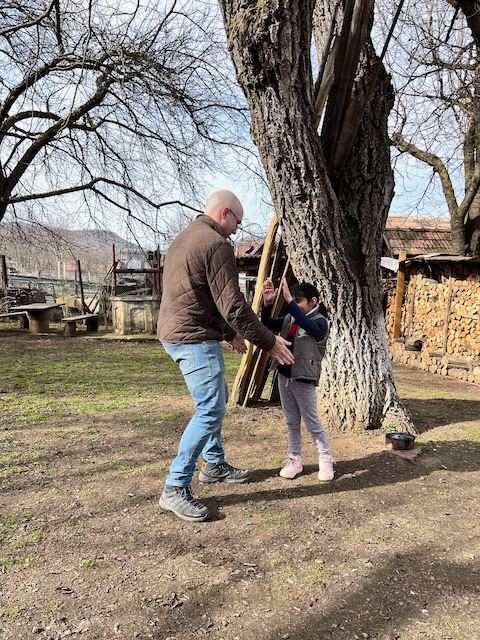The summer I met my lifetime American friends I was 14. They were from California and they asked us all to call them by their first names. We ever called any adults in such a direct way. This invitation created a type of closeness that we delighted in. We felt seen. Adults liked us and wanted to connect with us. Indeed, addressing some by their first name changes the dynamic.
As I became an adult it felt odd to call other adults with sir and madam. I would go back and forth. The inconsistency made me feel uneasy. But the first decade of my adult life I spent in California and I addressed everyone by their first name. That didn’t take away any of the respect. That was implied.
Coming back to Romania I brought with me that trained familiarity and friendliness. I was an established adult. People still cleared first the familiarity of addressing each other by the first name. It’s nice to have some sort of progression in any sort of relationship.
But I noticed a trend. A concerning trend. Most kids I know call us by our first name. It’s not even a question of how would we prefer to be addressed. Conrad’s name is sometimes hard to pronounce. He keeps telling kids: “you can call me mr. Altmann” and they all think he is joking or they don’t hear or they don’t listen. He says this phrase in Romanian, not in English. They are all dumbstruck.
In the lack of respect trend, I do think the form of address would have some influence. Neighbors, family friends, teachers.
My good friend Carmen who is a well respected doctor, she addresses all her patients and the audience when she has a big speech, with “dumneavoastră”, which is the polite form. It comes her natural and I believe she commands more respect by respecting others in such simple way.
I do wish kids would heed to our requests, or my husband’s request, in how to address him. He is an old grumpy man and would prefer some control over the distance between him and all the kids.
I know my dad has the same issue at church when kids flail their arms in front of his face, though they are 10+ years old, and call him by his first name. It is anxiety inducing. Reverence is not a thing of the present but a thing of the past. And yet, should it?
I think in the end it’s about the freedom to choose to be approachable. Though it goes both ways, the littles are learning the rules of engagement.

